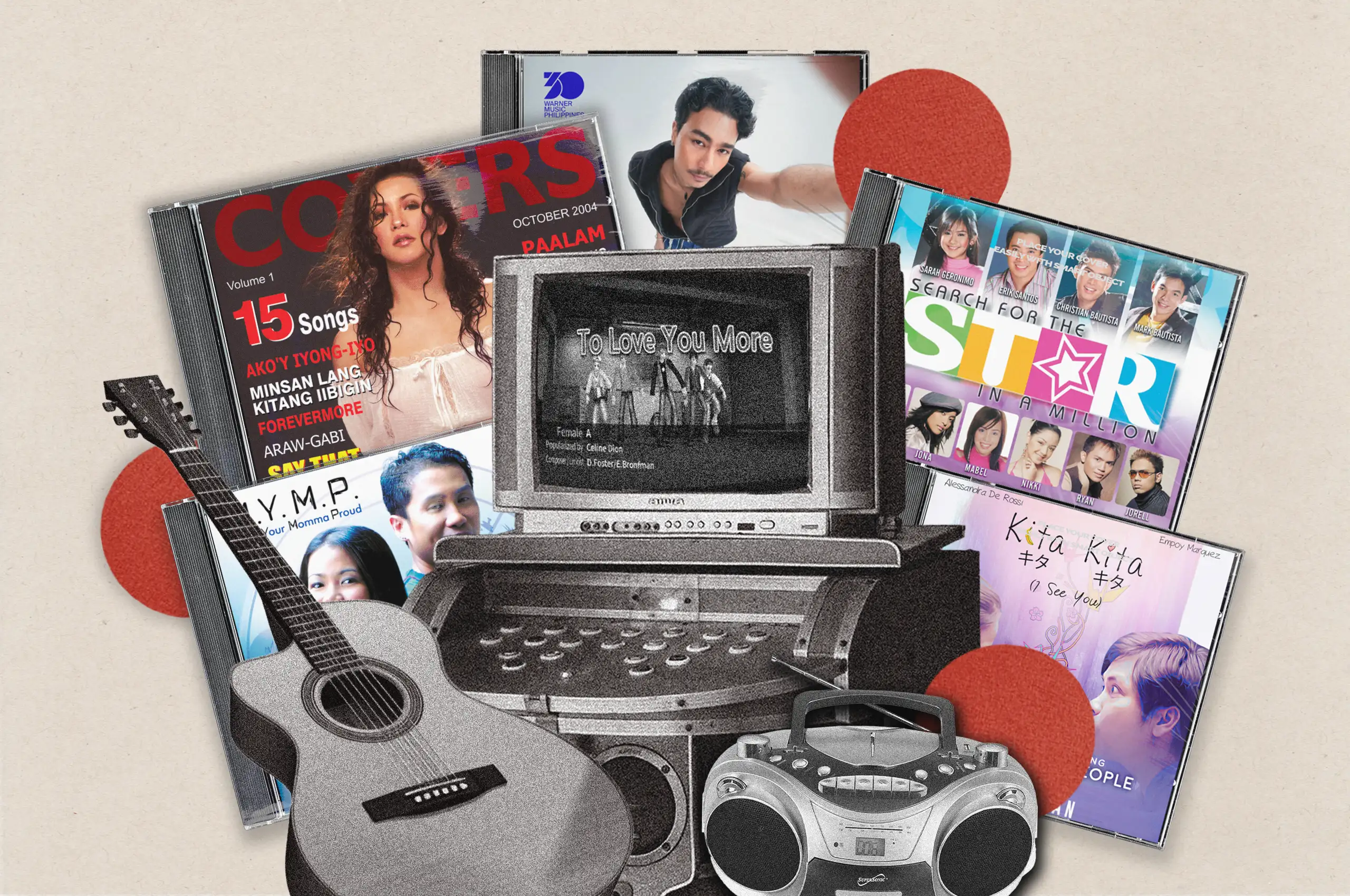Visiting Aly Cabral’s apartment feels like stepping into an archive. On the wall near the front door hangs a large print of a police officer engulfed in flames, stamped with the acronym “ACAB,” or “All Cops are Bastards.” In the corners of her apartment are traditional indigenous artworks alongside glossy, tongue-in-cheek lenticular prints of stallions riding across the lake or kittens bundled up in a ball.
Her partner Jay Villarosa, known in Manila’s post-punk scene as Sexy Jay, has set up a small barbershop by the living room plants. Bottles of Infanta lambanog are stacked neatly by the window; shelves are filled with vinyl records and liberationist literature, with a “Free Palestine” poster taped onto the bedroom door. It is a space that reflects Cabral’s life as an artist where every creative pursuit necessitates a level of independence. She often says life itself is DIY, and her story proves it.
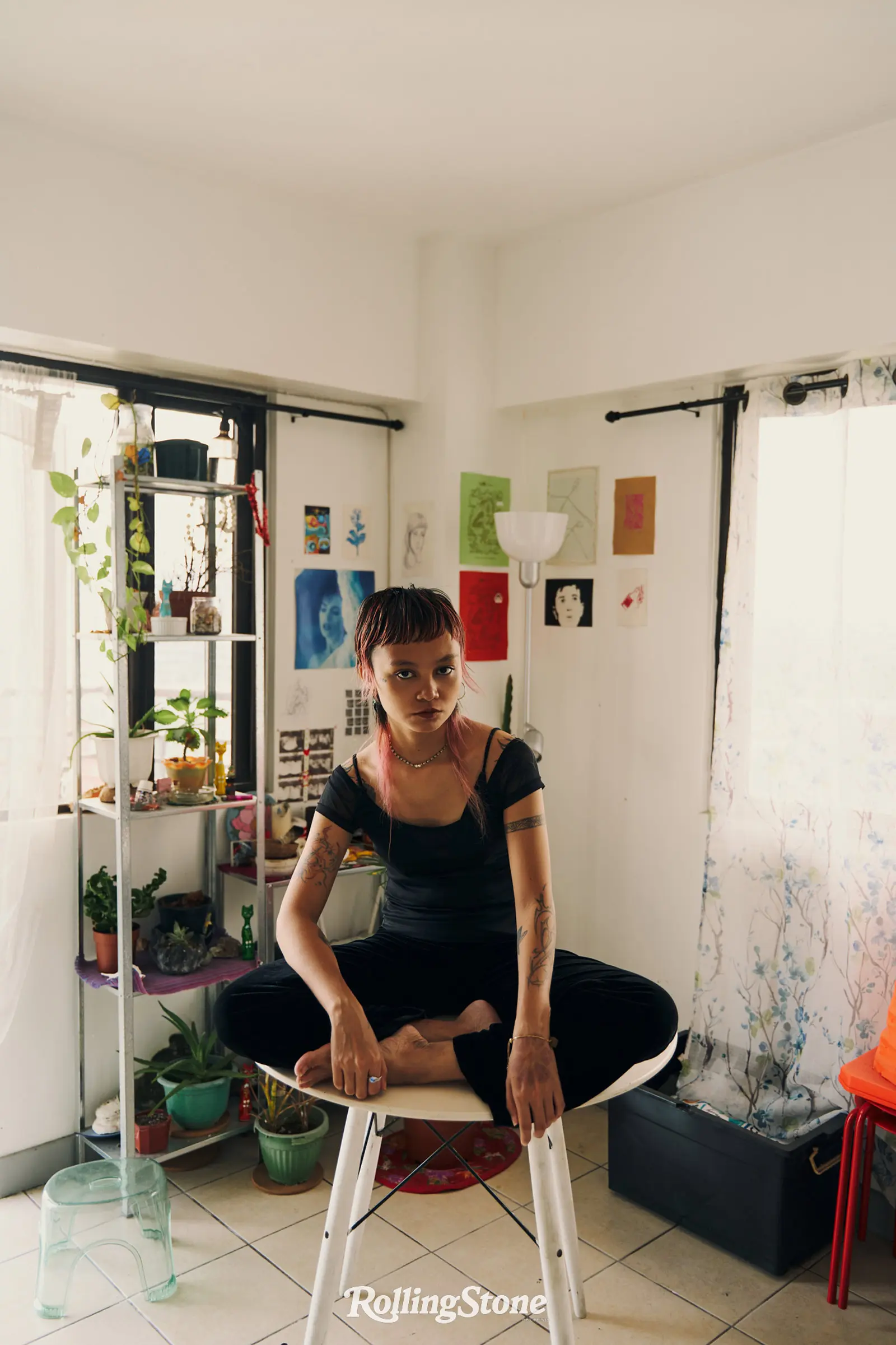
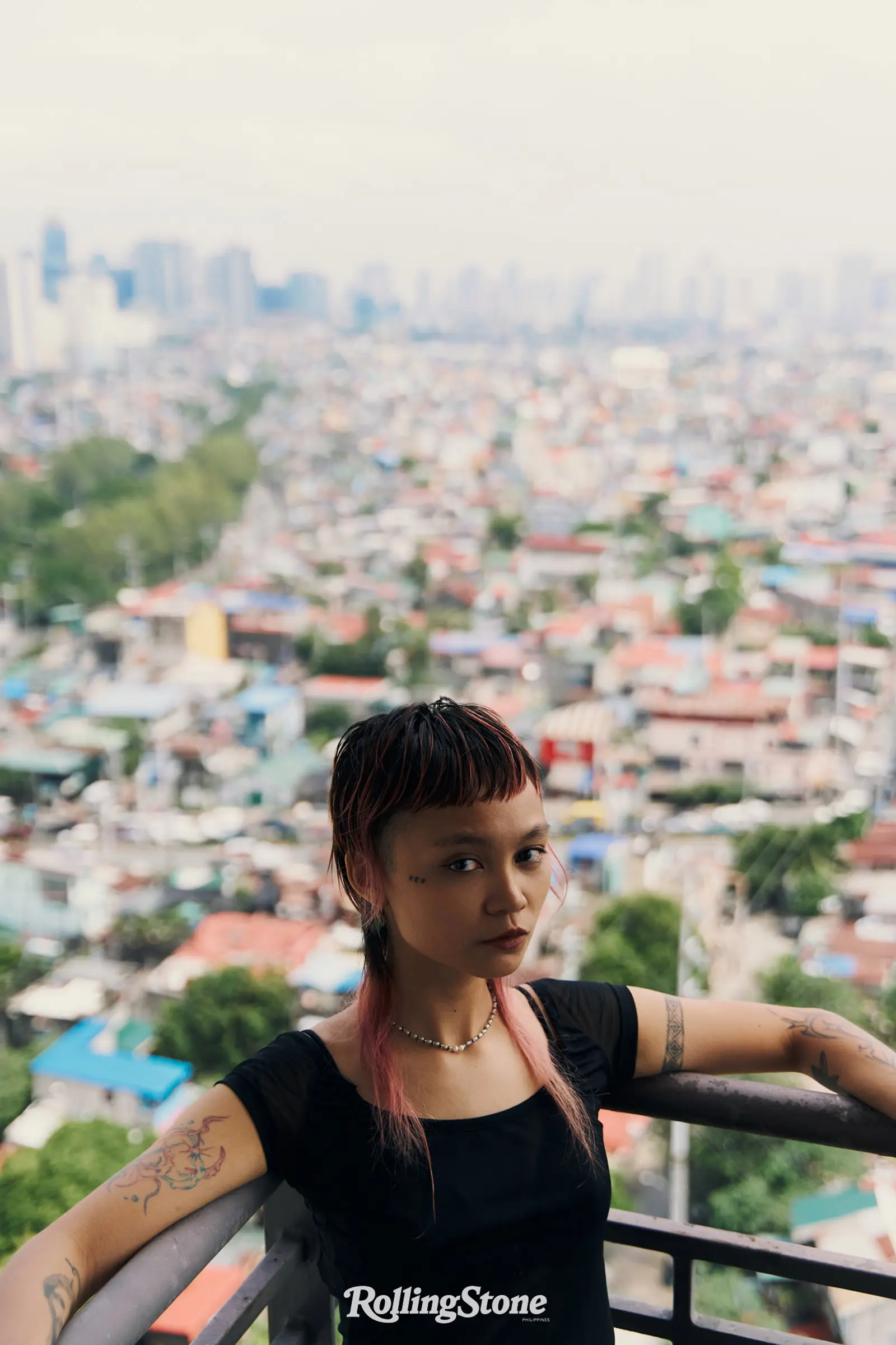
Cabral has lived many lives in music. She is known under her DJ moniker t33g33, and the sound engineer of Elephant Sound System, a rental service run by the queer collective ELEPHANT, which has hosted parties and raves across the country since 2017. Many first encountered Cabral as the lead vocalist of indie rock band Ourselves the Elves, who frequented venues like the now-defunct Route 196 in Katipunan or Mow’s Bar in Diliman. Her other music projects have included the heart-wrenching rhythms of Angel Olsen, or the lo-fi intimacy of Frankie Cosmos.
Music clearly runs through her blood. Her father, Herb Cabral, has been a veteran house and techno DJ in Manila since the late ‘80s. Growing up around his vinyl crates, Cabral developed an early obsession with sound, and it quickly became second nature. In 2016, she launched her solo project Teenage Granny alongside Idioterne, an avant-garde sound art collective. Those early works included databending projects that transformed internet traffic into sound, and writing songs inspired by online occult culture. These explorations, often layered with themes of urban life and political precarity, showed how Cabral engaged with the world instead of escaping from it.
To Create is to Liberate
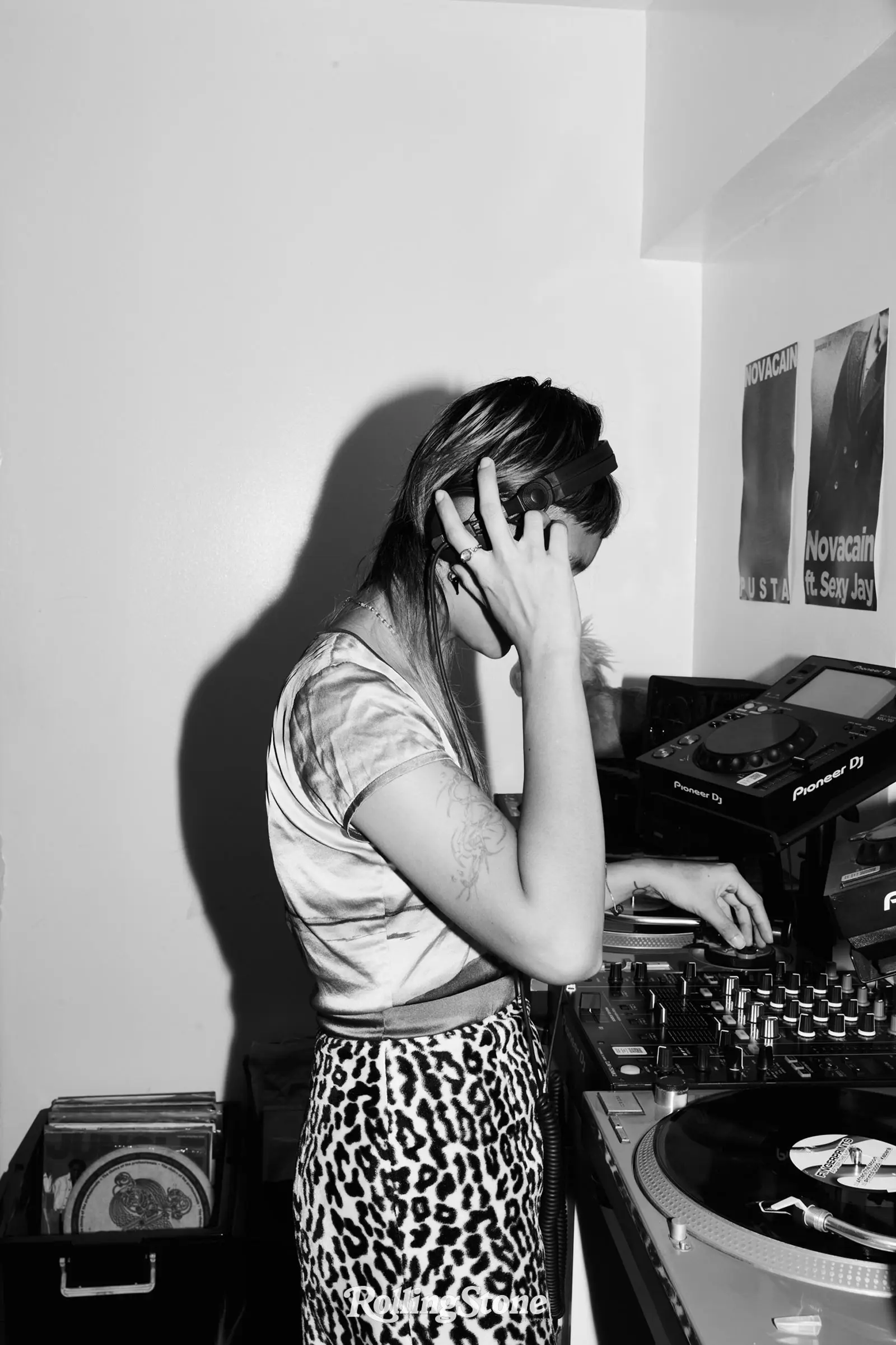
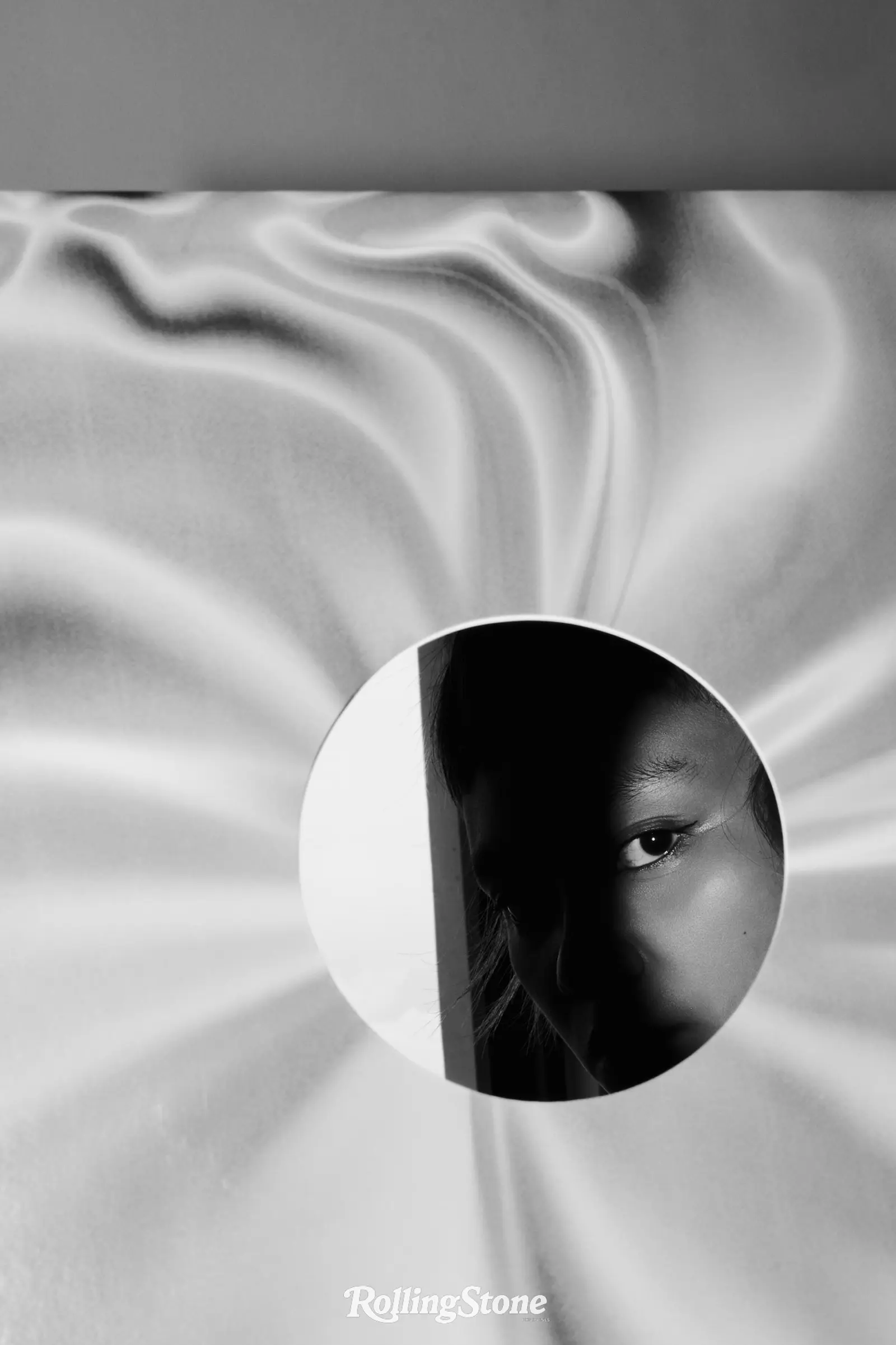
During our conversation, English trip-hop group Sneaker Pimps’ 1996 album Becoming X played softly in the background, a reminder that Cabral’s sonic palette spans decades and moods. Her curiosity with electronic music, in particular, shifts depending on the sounds that surface at any moment, but her approach stays grounded in the socio-political context of the contemporary Filipino.
Cabral taught herself how to DJ during the pandemic, explaining how she visited her dad’s studio every Friday to play his records. “He doesn’t use vinyl anymore,” she said. “I told him I would steal it from him.”
She refuses to reduce DJing to chasing trends. “I always appreciate newer forms of music, even music that comes out of TikTok. But there are ways to appreciate it [while bending] the capitalistic way of making and listening to music,” she says, referring to her own practice of intentionally consuming music, whether it’s buying physical media like vinyl records, reading an album’s liner notes, or reconsidering where we consume music altogether. Cabral also cites budots, the Filipino grassroots genre of dance music, as one example of how music can resist capitalist tropes — particularly in how it incorporates indigenous Badjao rhythms with modern elements like synths, syncopated drum patterns, and viral meme sound bites.
“The mainstream will not survive without the underground because that’s where the ideas come from.”
“I realized something about [budots] because it’s influenced by humor,” she says. “It’s like an open source [form of] media because if you make a meme, anybody can use it. It’s not a work of art that you put your signature on. It’s free to use.”
For Cabral, Filipino culture is constantly subject to appropriation of new contexts — a contradiction that is both a source of colonial anxiety and liberation. The music of budots producers, in particular, go largely uncompensated and even uncredited, yet the genre thrives in its openness, endlessly adapting to the different tastes, tweaks, and samples of its creators. In doing so, budots offers a sense of belonging among its listeners and producers with each new version, and Cabral frames the genre as a mirror of how she approaches her own work where art generates new meaning with every iteration.
Cabral brings that same openness into the entire ecosystem of sound. The open source parallels between budots and sound system culture became apparent in her volunteer work with SAKA, an artist-led mass organization where she helps as an audio engineer, setting up speaker systems during protest demonstrations. That work — which she describes as very “experience-based,” having “no formal knowledge about it” except from technicians she’s met in Raon Shopping Center, Quiapo — naturally carried over to the parties she organizes with ELEPHANT. The work is grueling, and Cabral is often the first to arrive to set up, and the last to leave after packing down. This, however, helped her realize how essential sound systems are in cultural work.
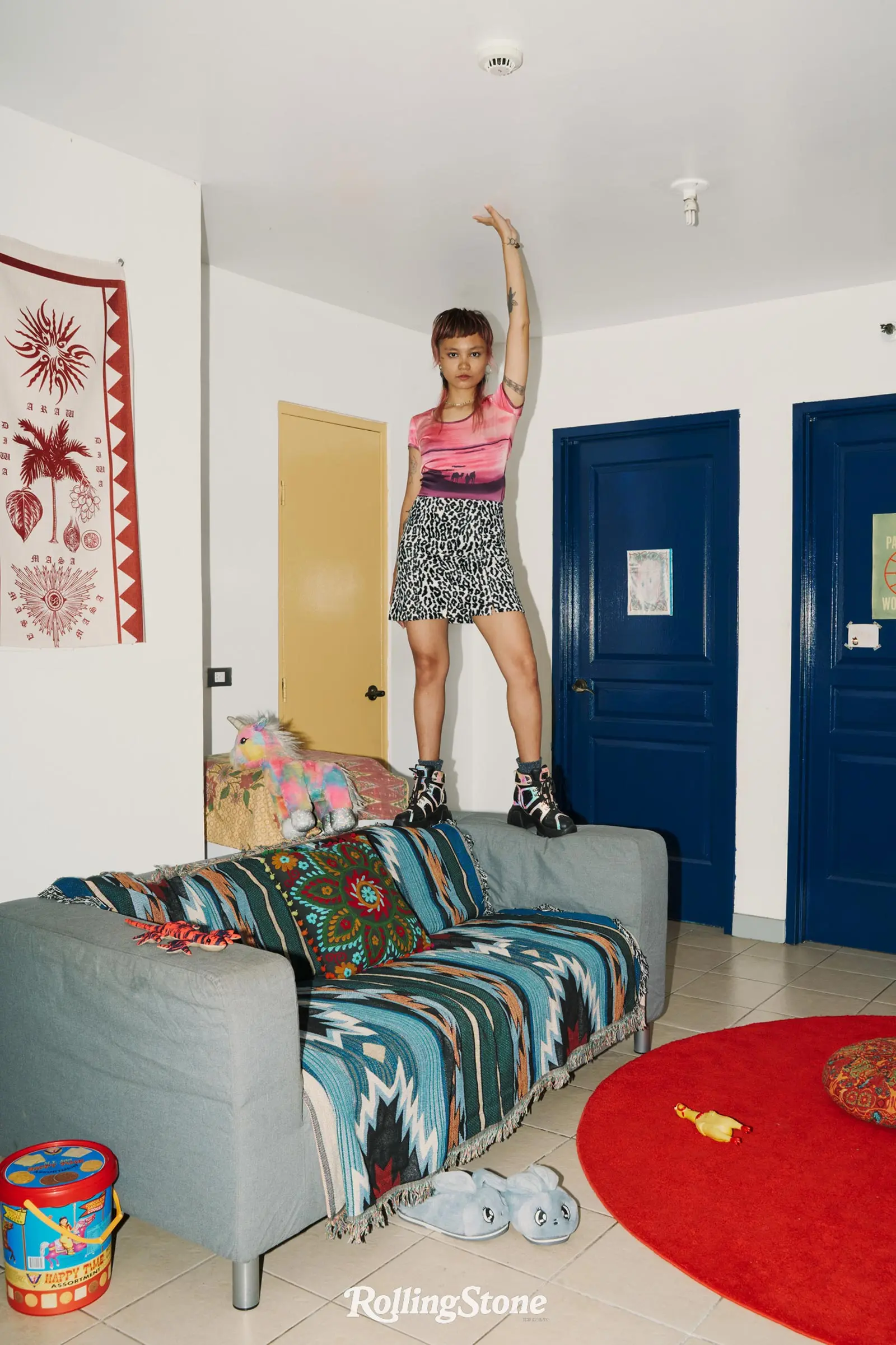
“I really want to push for this sound system [with] ELEPHANT. I always tell [my co-organizer] Andi [Osmeña] that I wish there was queer representation in the sound tech industry,” she says. “I’m sure there are a lot of women who are interested, but there’s not a lot of channels to do it. So, we’re manifesting to meet more queer people. Like women in STEM [Science, Technology, Engineering, Mathematics], queers in audio engineering.”
Much like how the Jamaican dub and reggae sound systems inspired music communities in hip-hop, house, and techno, this vision of queer-led sound systems comes from the idea that sound engineering is not just about fidelity or volume, but about who controls the tools of amplification. By holding space for queer voices behind the equipment, Cabral hopes to shift how communities are built from the ground up.
Cultural Work is Work
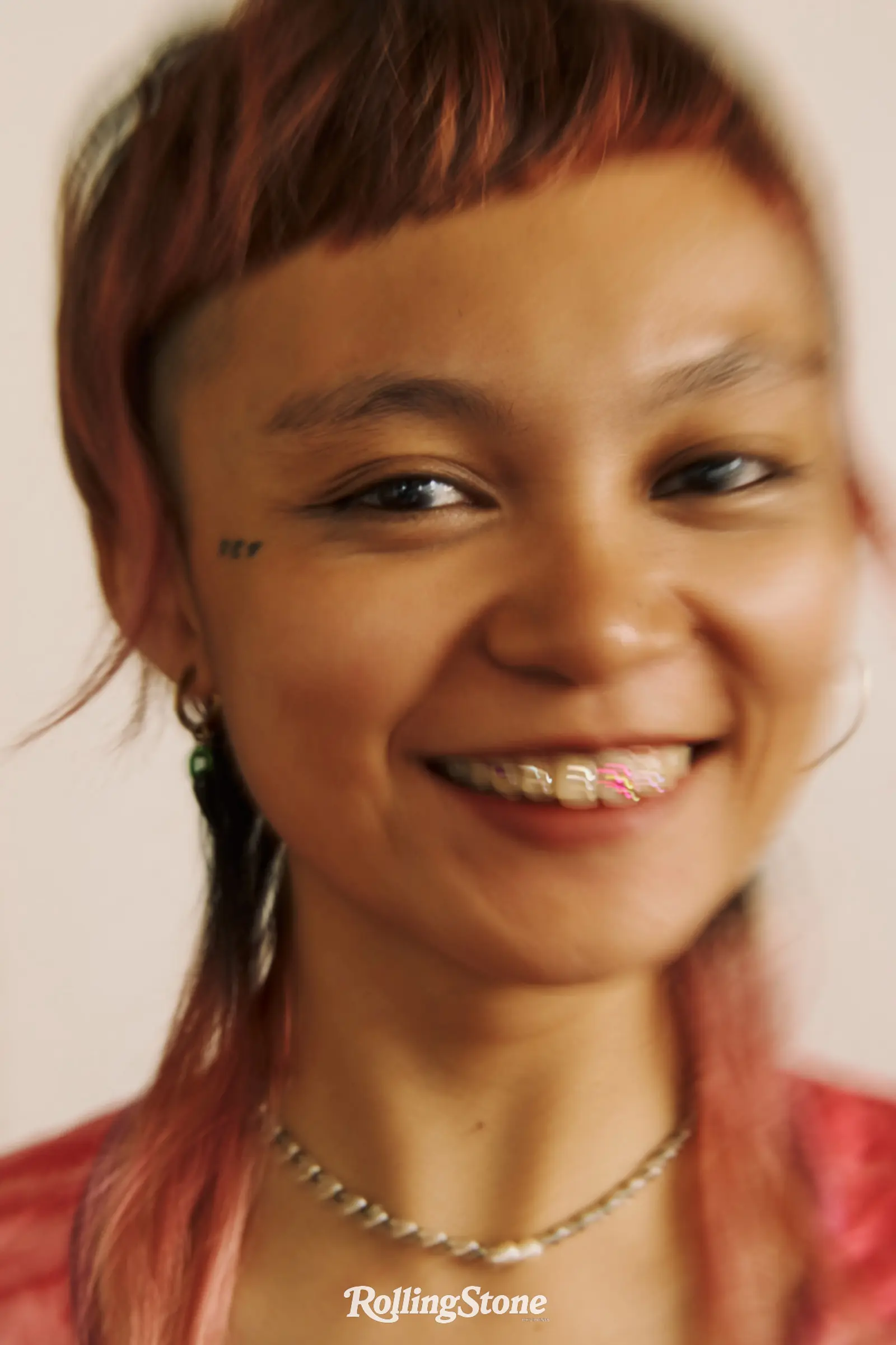
Cabral is one of the rare figures in the Philippine independent music scene who treats art not as a career path, but as a survival strategy, often working side-by-side with mass organizations, advocating for reforms on agrarian land, an end to red-tagging by the National Task Force to End Local Communist Armed Conflict, and an increase of the daily minimum wage. The proceeds from her latest album, e v o l ¡ r e v o l ! mantras for love and liberation, for instance, go toward communities affected by recent typhoons.
As such, Cabral doesn’t see herself as only a musician, but as a “cultural worker” — someone who also organizes, facilitates, and sustains spaces where culture thrives, especially for society’s most vulnerable. These roles are not separate hustles but extensions of one another, keeping her tethered to the political realities of her time.
“It’s not always a rewarding experience. There really are times when you feel like you’re being exploited or extracted,” she says. “But that’s why I chose to operate in the underground because it doesn’t feel like I’m less complicit in anything that harms the culture. I have freedom to do what I want for myself and for the communities [I’m a part of].”
For Cabral, enduring as an artist means refusing to wait for validation from institutions. It means building networks, cultivating skills, and trusting in the communities that keep grassroots culture alive. “I do it with my community because we really love doing it. It’s not for money or anything, and I feel that is really valuable to the culture as a whole. The mainstream will not survive without the underground because that’s where the ideas come from.”




